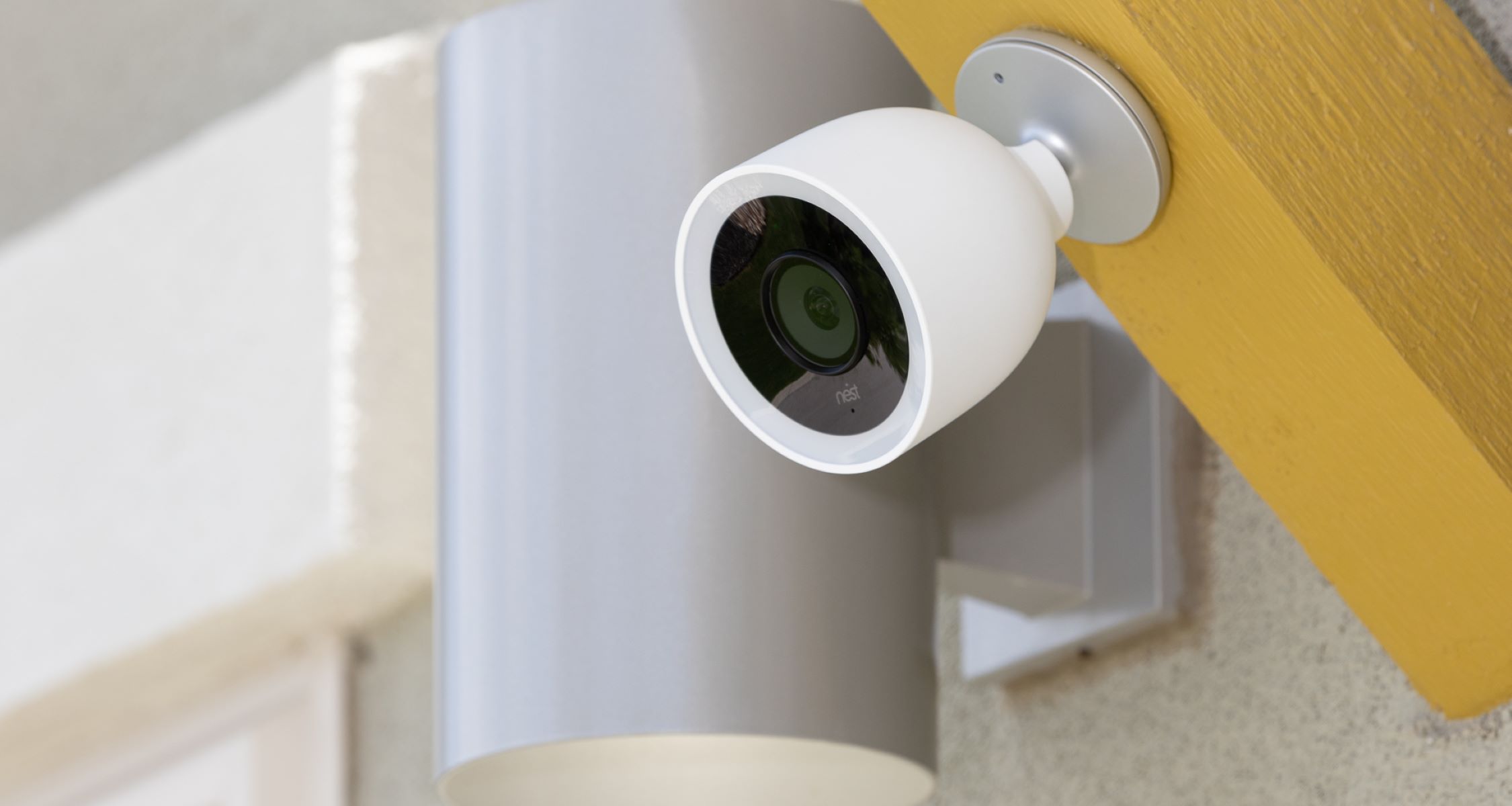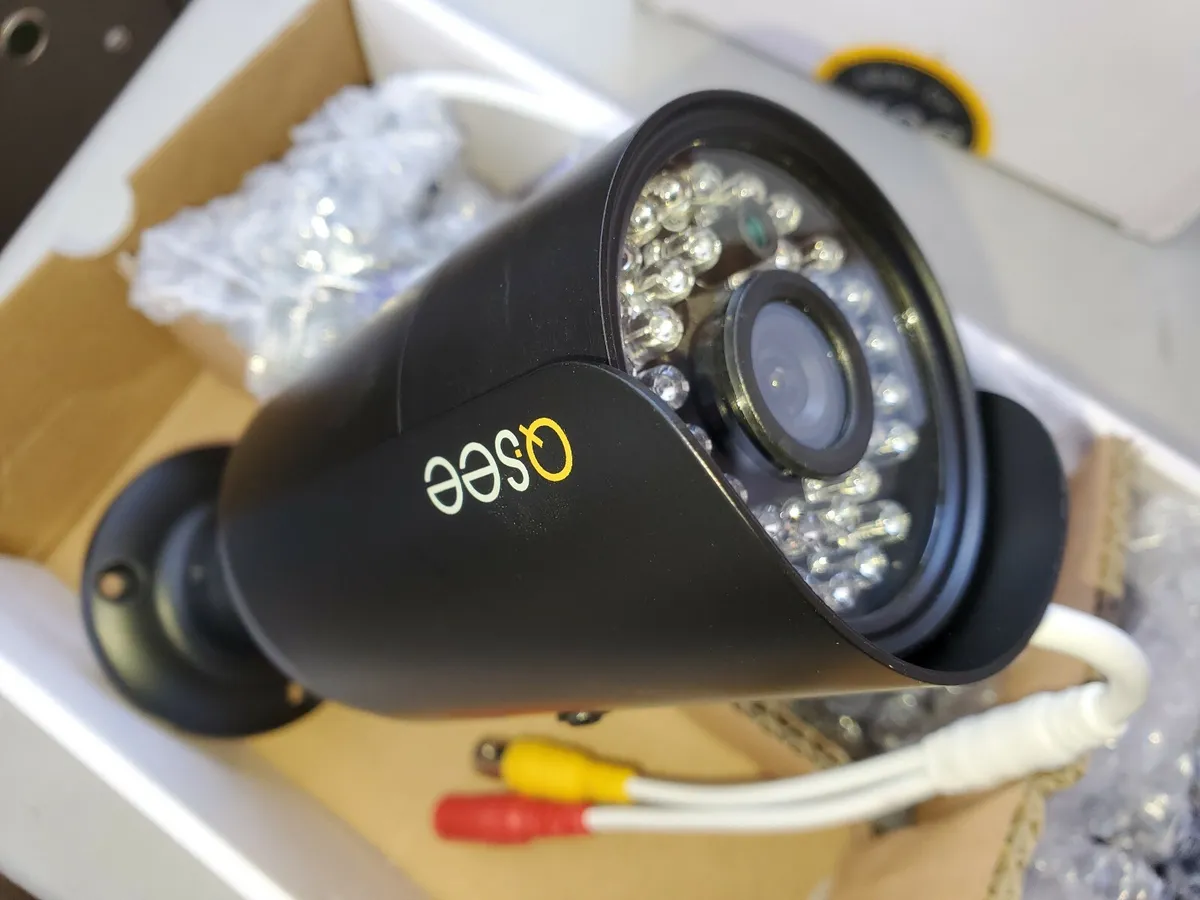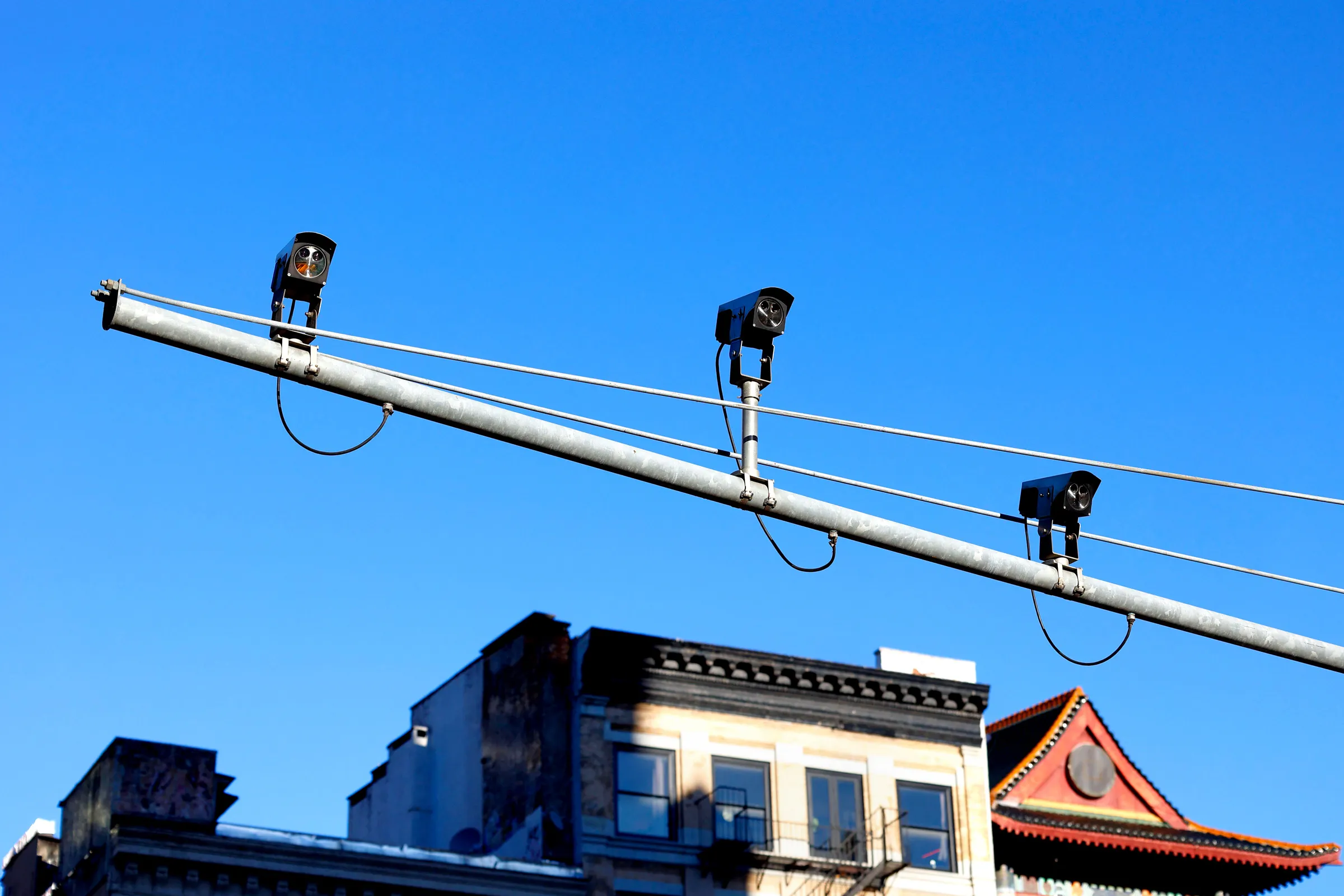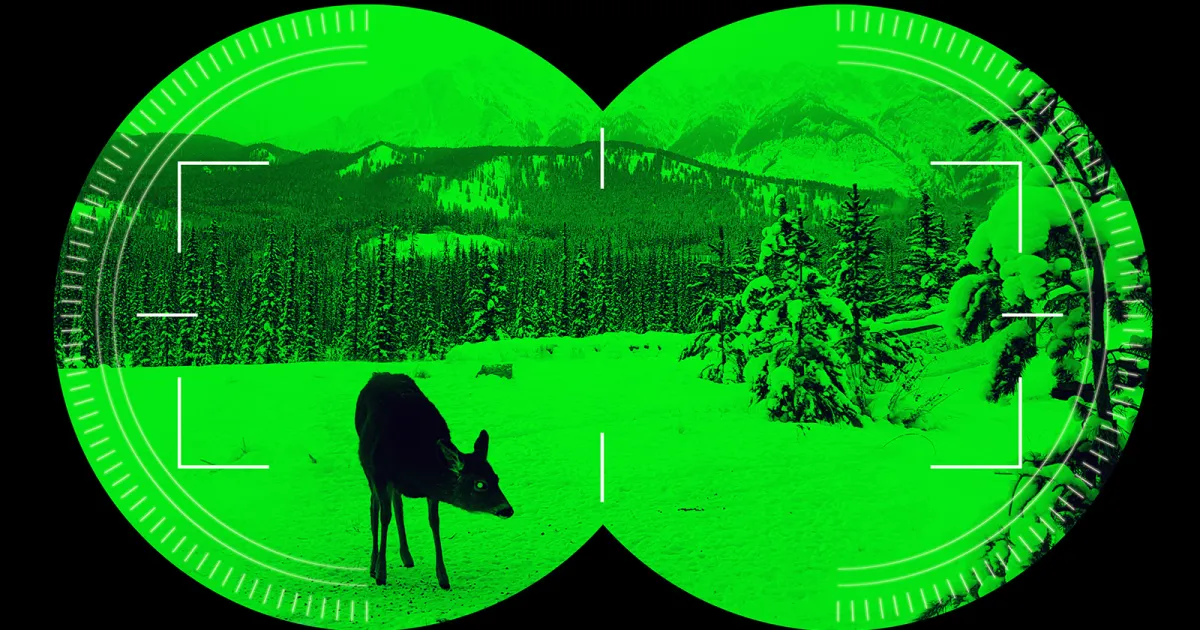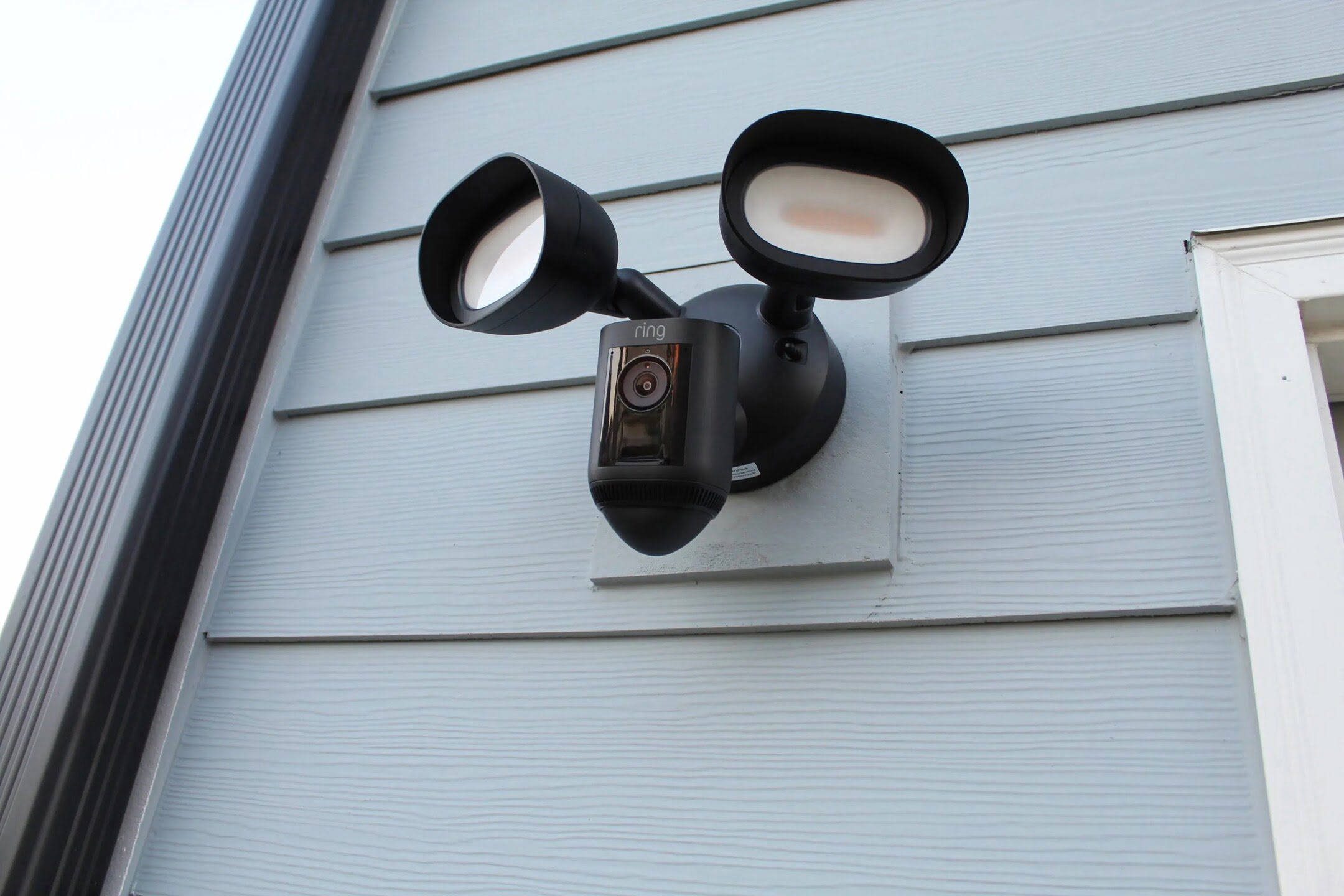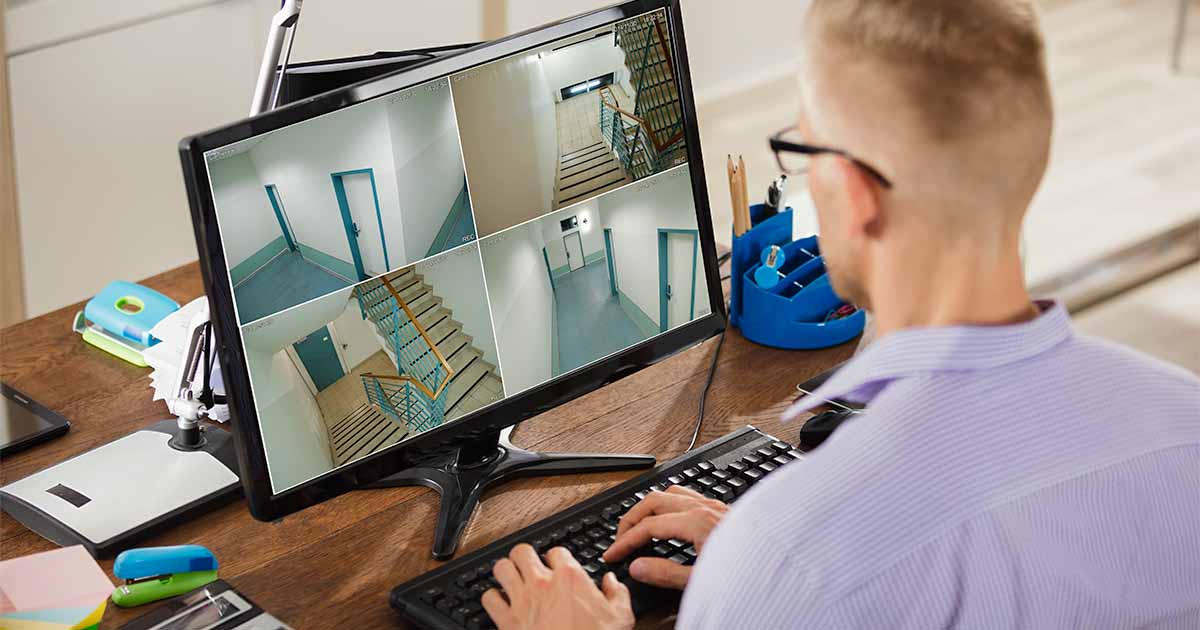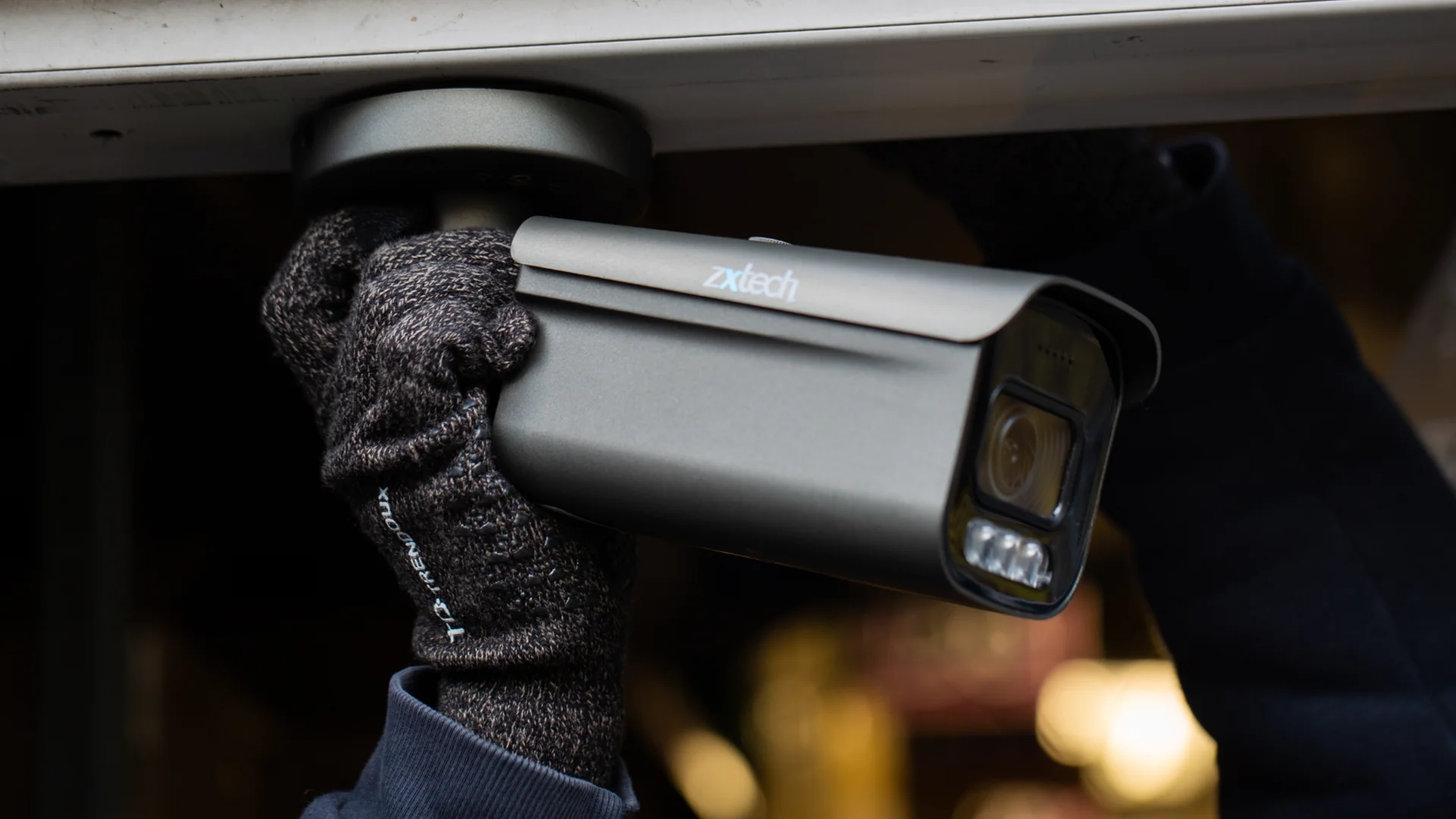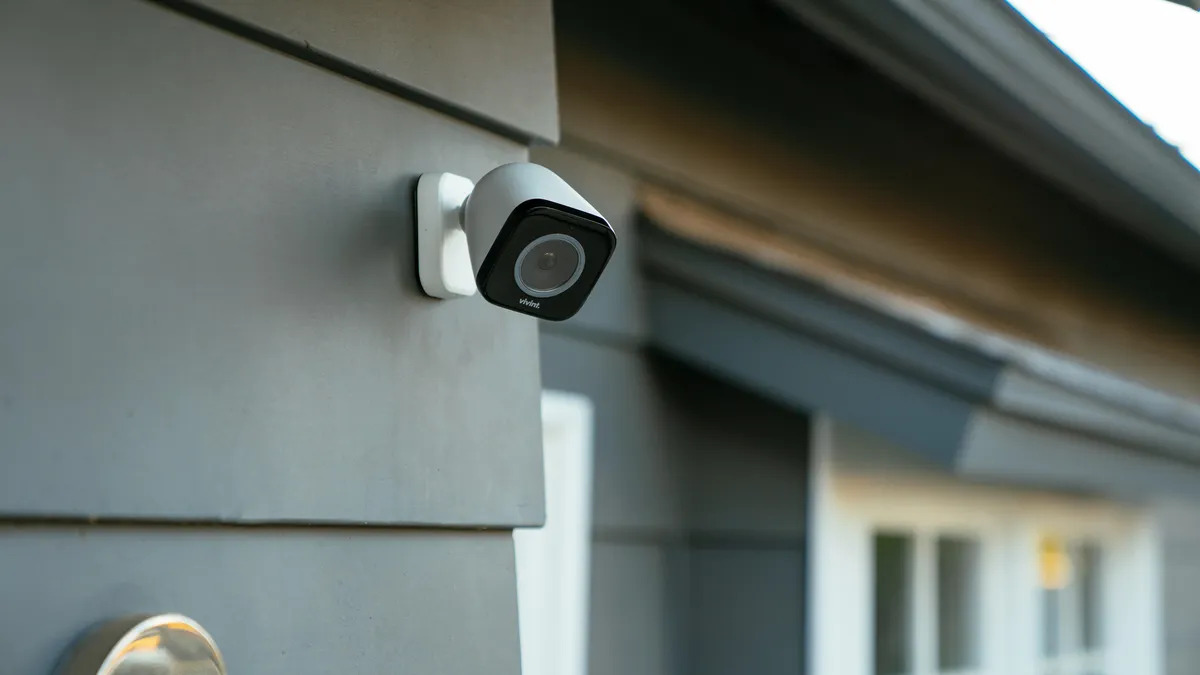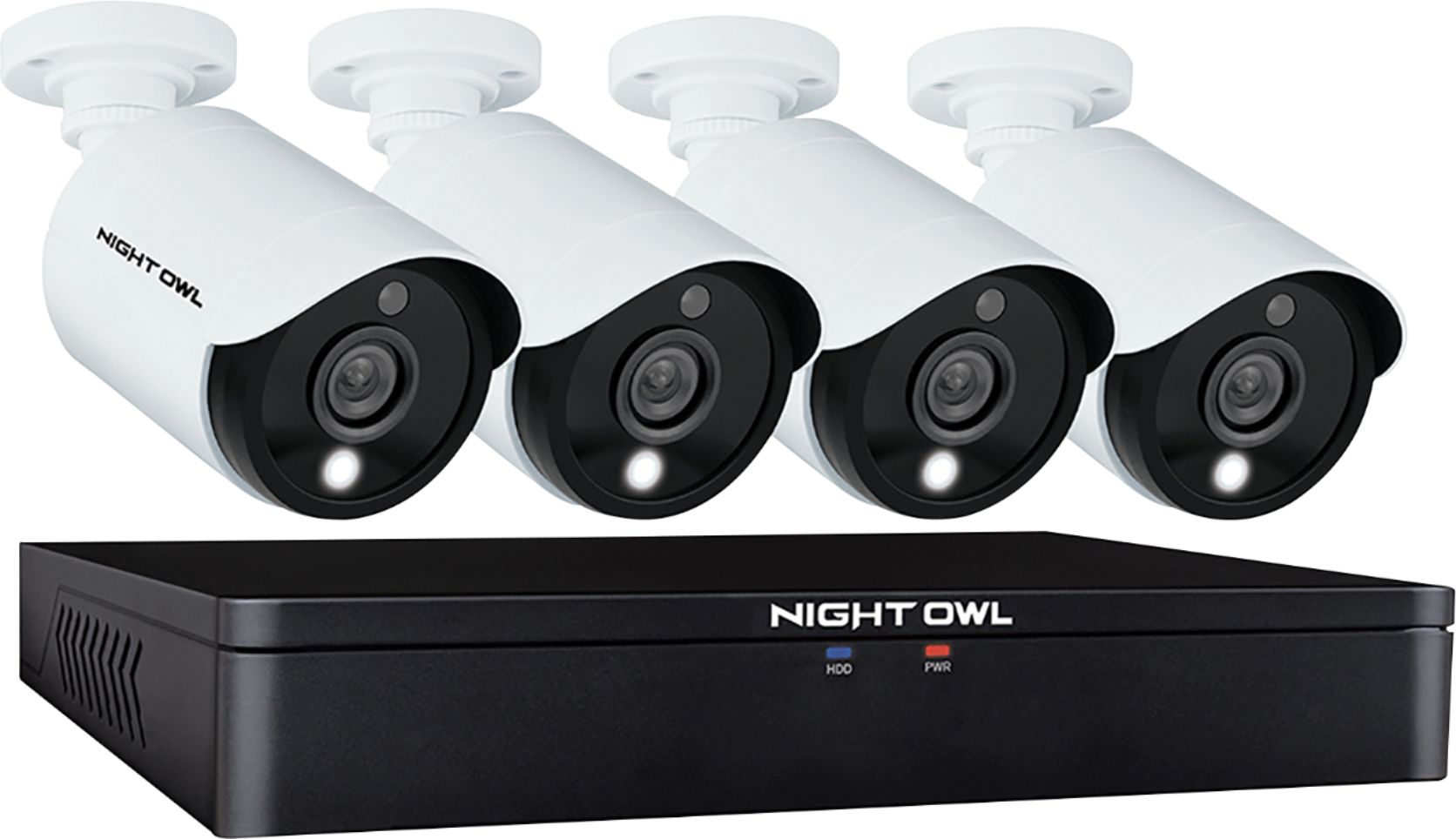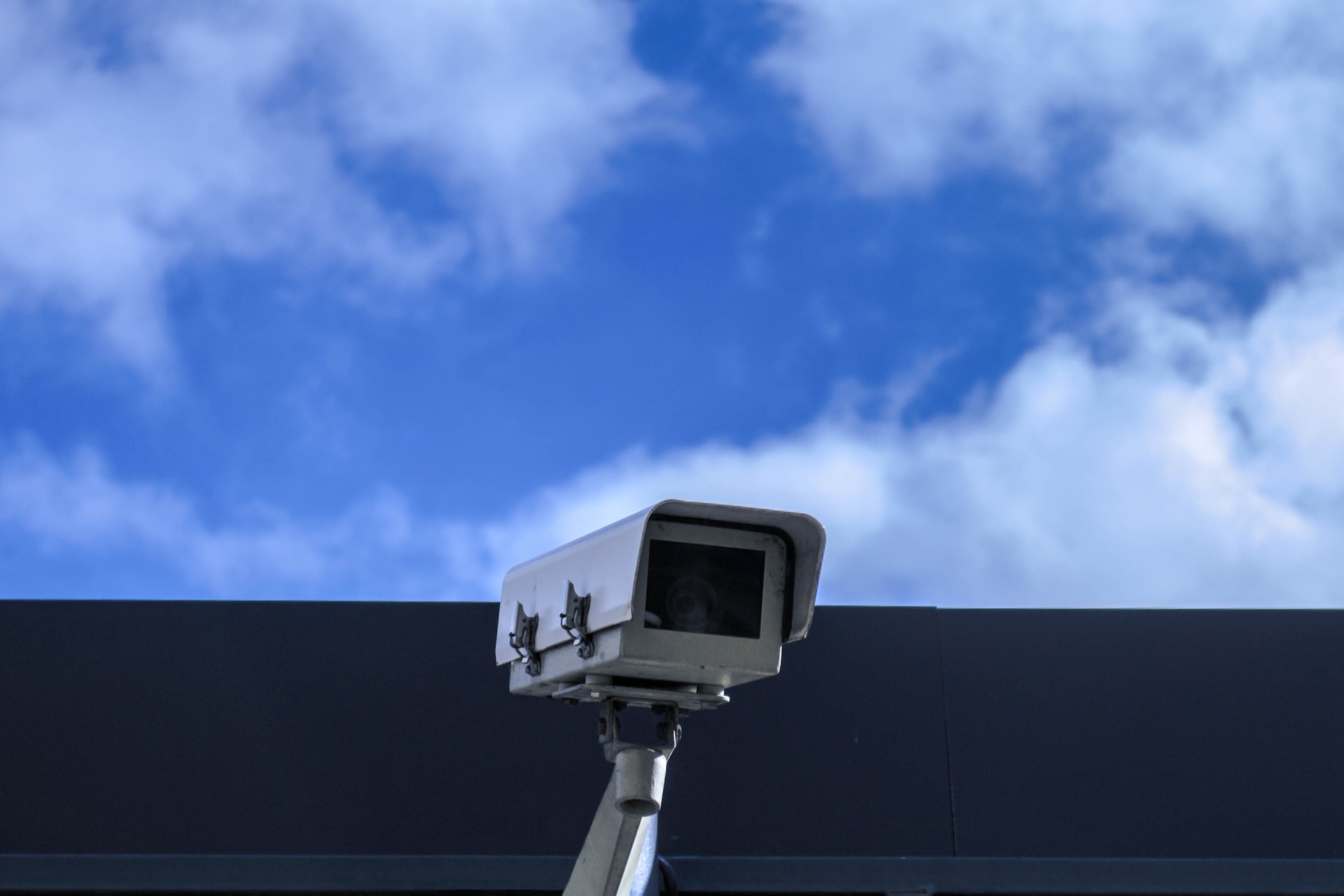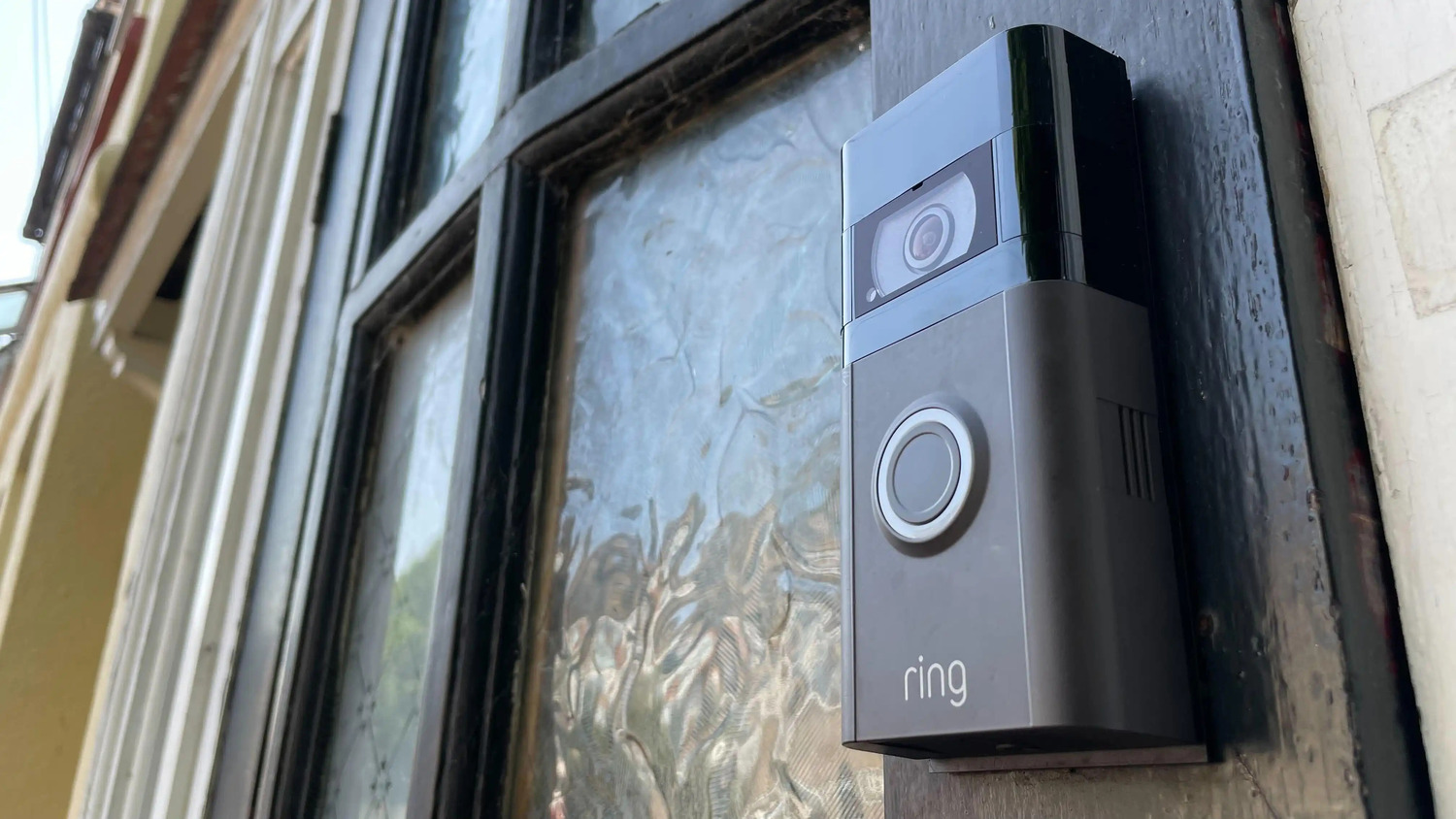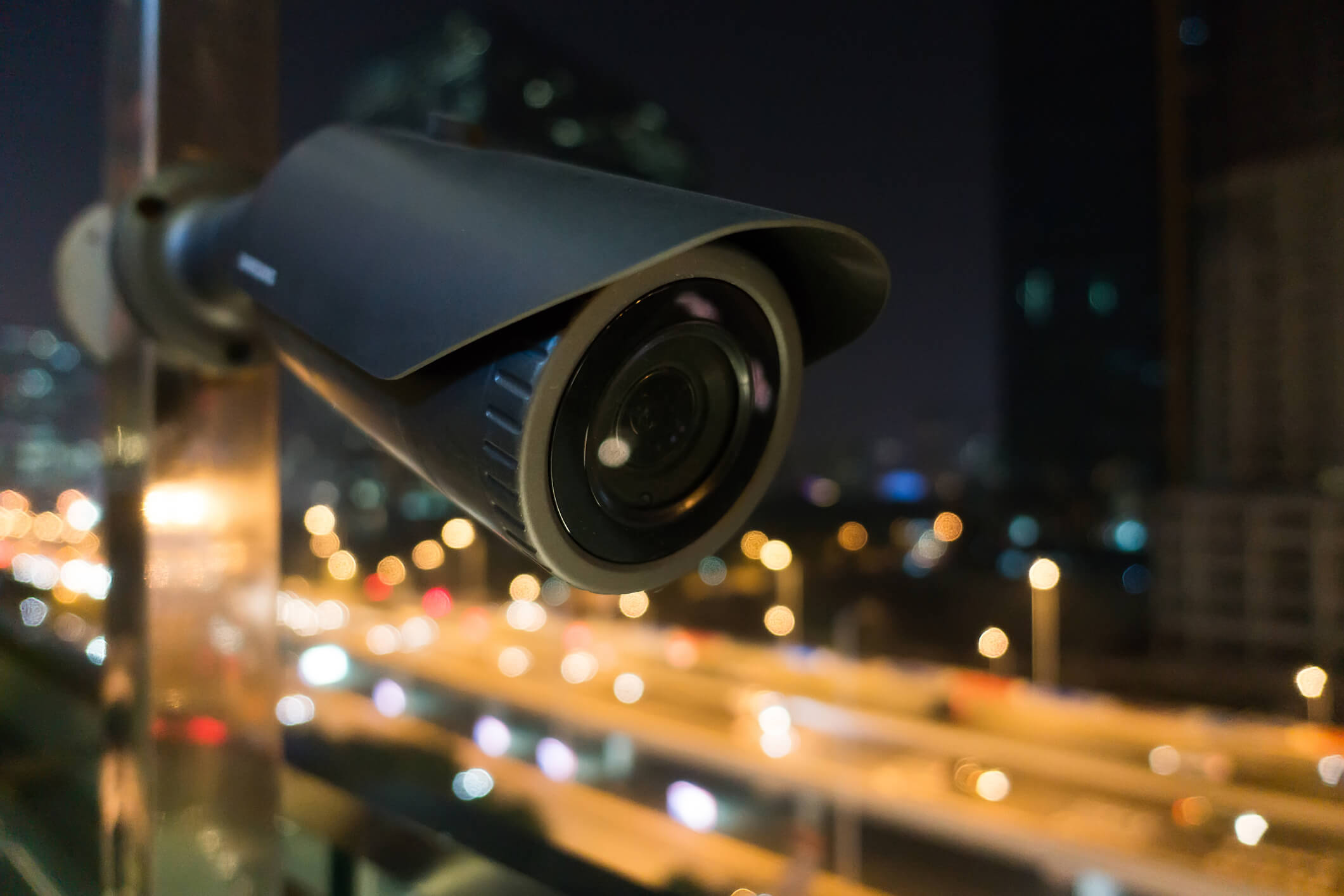Home>Home Security and Surveillance>How Far Can A Security Camera See At Night
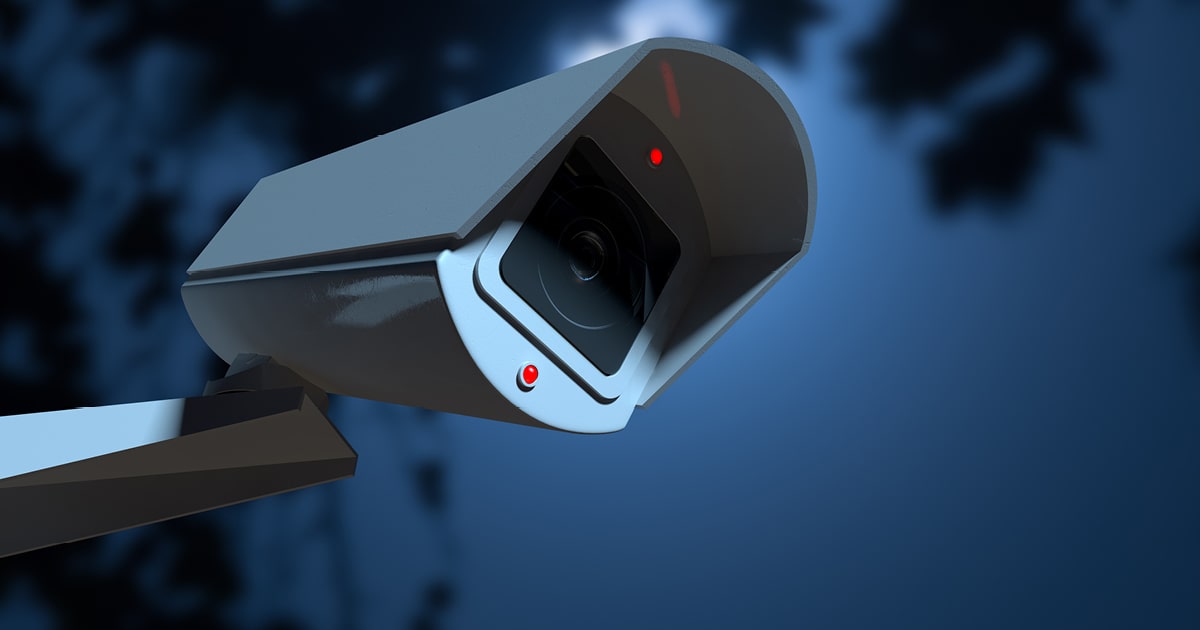

Home Security and Surveillance
How Far Can A Security Camera See At Night
Modified: October 18, 2024
Learn about how far a security camera can see at night with our comprehensive guide. Find out how to choose the best home security and surveillance system for your needs.
(Many of the links in this article redirect to a specific reviewed product. Your purchase of these products through affiliate links helps to generate commission for Storables.com, at no extra cost. Learn more)
Introduction
Welcome to the world of home security and surveillance, where technology plays a vital role in protecting your loved ones and your property. When it comes to maintaining the safety and security of your home, having a reliable security camera system is essential.
One important aspect to consider when choosing a security camera is its ability to see clearly during nighttime hours. A security camera’s night vision capabilities determine its effectiveness in capturing crucial details, even in low-light or no-light conditions.
In this article, we will dive into the world of night vision technology and explore how far a security camera can see at night. We will discuss various factors that affect night vision range, different types of security cameras for night vision, and ways to enhance and extend the night vision capabilities of your security camera system.
So, whether you are a homeowner looking to increase the security of your property or a business owner concerned about protecting your assets, this article will provide you with valuable insights to make an informed decision.
Key Takeaways:
- See clearly in the dark
Understanding night vision technology and factors affecting range can help you choose the best security camera for your needs. Consider camera sensitivity, infrared illumination, and environmental conditions to optimize night vision performance. - Enhance your night vision
To extend the range of your security camera’s night vision, consider using advanced technology, adding exterior lighting, and optimizing camera placement. Regular maintenance and consulting with professionals can also improve night vision capabilities.
Read more: How Far Can Night Vision Cameras See
Understanding Night Vision Technology
Night vision technology enables security cameras to capture clear and detailed footage in low-light or no-light conditions. It is achieved through the use of various technologies that amplify the existing light or provide additional illumination to enhance visibility.
There are primarily two types of night vision technologies used in security cameras: low-light imaging and infrared (IR) illumination.
Low-light imaging, also known as image intensification, works by gathering the available ambient light and amplifying it to create a brighter image. This technology is commonly found in analog cameras and relies on a light-sensitive sensor known as an image intensifier tube. The sensor converts photons (light particles) into electrons, amplifies them, and then converts them back into visible light for capturing images.
Infrared (IR) illumination, on the other hand, utilizes infrared light to illuminate the scene. Most security cameras equipped with night vision capabilities have built-in IR LEDs (infrared light-emitting diodes) that emit infrared light. The camera’s image sensor is designed to be sensitive to infrared light, enabling it to detect and capture images even in complete darkness.
Both low-light imaging and infrared illumination have their advantages and limitations. Low-light imaging is effective when there is some ambient light present, but it may struggle in completely dark environments. In contrast, infrared illumination provides reliable night vision even in pitch-black conditions but may have limitations in terms of distance and clarity.
Understanding the limitations and capabilities of each night vision technology is crucial in selecting the right security camera for your specific needs. Factors such as the range, image quality, and environmental conditions play a significant role in determining the effectiveness of a security camera’s night vision capabilities.
Factors Affecting Night Vision Range
Several factors contribute to the effective range of a security camera’s night vision capabilities. Understanding these factors will help you optimize the placement and performance of your security camera system:
- Camera Sensitivity: The sensitivity of the camera’s image sensor to low light affects its ability to capture clear images in the dark. Higher sensitivity allows for better night vision performance and extends the range at which the camera can see.
- Infrared Illumination: The strength and quality of the built-in IR illuminators significantly impact night vision range. Cameras with more powerful IR LEDs can illuminate a larger area, providing clear images even at a greater distance.
- Optics and Lens Quality: Good quality optics and lenses are essential for capturing clear and sharp images during nighttime. A lens designed for low-light conditions enhances light gathering capabilities, enabling the camera to see farther and produce better image quality.
- Obstacles and Environmental Conditions: Physical obstacles such as walls or trees, as well as atmospheric conditions like fog or rain, can affect night vision range. These factors can block or scatter infrared light, reducing the camera’s ability to see clearly at a distance.
- Camera Resolution: Higher resolution cameras tend to have better image quality and can capture more details even in low-light situations. A higher resolution allows for better identification of subjects and objects in the camera’s field of view.
- Field of View: The wider the camera’s field of view, the more area it can cover, but this may come at the expense of night vision range. Cameras with narrower fields of view can deliver better image clarity at longer distances.
- Noise Reduction: Noise reduction technologies used in modern security cameras help reduce image noise in low-light environments. This can enhance the visibility of objects and subjects in the camera’s field of view, improving night vision range.
It’s important to consider these factors while choosing a security camera system to ensure optimal night vision performance and the ability to effectively monitor your property, even in challenging lighting conditions.
Types of Security Cameras for Night Vision
When it comes to choosing a security camera with night vision capabilities, there are several types to consider. Each type offers unique features and benefits. Let’s explore some of the popular options:
- Infrared (IR) Cameras: These cameras are specifically designed for night vision and use infrared illumination to capture clear images in the dark. They emit infrared light and have sensors that are sensitive to those wavelengths, allowing them to produce monochrome images in low lighting conditions.
- Wide Dynamic Range (WDR) Cameras: WDR cameras are ideal for environments with varying lighting conditions. They utilize advanced image processing techniques to capture clear images, even in scenes with high contrast between bright and dark areas. This technology ensures that details in both well-lit and poorly lit areas are visible.
- Starlight Cameras: Starlight cameras are designed to capture color images in extremely low-light conditions. They utilize advanced sensors with high light sensitivity, allowing them to produce detailed and colorful images even in near darkness. These cameras provide superior low-light performance compared to traditional infrared cameras.
- Thermal Cameras: Thermal cameras operate based on heat signatures rather than visible light. They capture images by detecting the varying heat levels of objects and subjects in the scene. Thermal cameras are effective in complete darkness and can detect intruders or unusual heat patterns, making them suitable for monitoring large outdoor areas.
- Pan-Tilt-Zoom (PTZ) Cameras: PTZ cameras offer the ability to pan, tilt, and zoom, providing versatile coverage and flexibility. Many PTZ cameras are equipped with infrared illuminators for night vision capabilities, allowing them to capture clear images even when zoomed in on subjects at a distance.
- Wireless IP Cameras: Wireless IP cameras use your home Wi-Fi network to transmit video footage to a connected device. These cameras often have built-in infrared night vision capabilities, allowing you to monitor your property remotely, even in low-light conditions, using a smartphone or computer.
Each type of security camera has its own set of features and benefits. Consider factors such as the location and purpose of surveillance when selecting the best night vision camera for your specific needs.
Make sure to check the camera’s infrared distance, which indicates how far it can see in the dark. Look for a camera with a longer infrared distance for better night vision.
Infrared Illuminators: Extending Night Vision Range
Infrared (IR) illuminators are vital components of security cameras with night vision capabilities. They emit infrared light, which is invisible to the human eye but can be detected by the camera’s image sensor. By providing additional illumination in the form of infrared light, IR illuminators extend the night vision range of security cameras, allowing them to capture clear images in complete darkness.
The range and effectiveness of infrared illuminators can vary depending on factors such as the power of the LEDs, the angle of illumination, and the environment in which they are used. Here are some key points to consider:
- Infrared LED Power: The power of the infrared LEDs used in the camera’s illuminator determines the distance and area the night vision can cover. Cameras with more powerful LEDs can provide a longer night vision range.
- Angle of Illumination: The angle at which the IR light is emitted from the camera can also affect night vision range. A wider angle of illumination covers a larger area but may have limitations in terms of distance and image clarity. A narrower angle of illumination can provide a longer range but may have a more focused area of coverage.
- Reflective Surfaces: The presence of reflective surfaces in the camera’s field of view can impact night vision range. Reflective surfaces, such as windows or mirrors, can bounce back the infrared light emitted by the camera, causing glare or flare that can affect image quality.
- Interference: Other sources of infrared light, such as streetlights or nearby security cameras with overlapping night vision ranges, can potentially interfere with the camera’s night vision performance. It’s important to position the camera strategically to minimize interference and maximize the effectiveness of the infrared illuminators.
- Additional Lighting: In some situations, supplementing the built-in infrared illuminators with additional lighting sources can help enhance night vision range. Some cameras have the ability to connect external lighting, such as floodlights, to provide additional illumination and extend the coverage area.
Understanding the capabilities and limitations of infrared illuminators is crucial for maximizing the night vision range of your security camera system. Proper placement, along with considerations for power, angle, and potential interference, can significantly enhance the effectiveness of your night vision surveillance.
Read more: How Far Can Home Security Cameras See
Factors to Consider for Optimal Night Vision Performance
When it comes to achieving optimal night vision performance with your security camera system, there are several factors you should consider. Understanding and addressing these factors will ensure that your cameras can capture clear and detailed images even in low-light conditions:
- Camera Placement: Proper camera placement is crucial for maximizing night vision performance. Ensure that your cameras have an unobstructed view of the area you want to monitor. Avoid placing them behind glass or near objects that could block or reflect light, as this can negatively impact image quality.
- Quality of Camera Lenses: High-quality camera lenses with a wide aperture allow more light to enter the camera, enhancing night vision performance. Look for lenses specifically designed for low-light conditions to ensure optimal image clarity.
- Maintenance and Cleaning: Keep your camera lenses clean and free from dirt, dust, and smudges. Regularly inspect and clean your cameras to ensure that they can capture clear images. Dirty lenses can significantly degrade night vision performance.
- Lighting Conditions: Although infrared illumination is effective in low-light and no-light conditions, having some ambient light present can help enhance night vision performance. Consider installing outdoor lighting or security lights to provide additional illumination to your surveillance area.
- Noise Reduction: Look for cameras equipped with noise reduction technologies. Noise reduction algorithms can reduce image noise and improve image clarity, especially in low-light situations, allowing for better overall night vision performance.
- Camera Settings: Adjusting camera settings such as exposure, gain, and shutter speed can further enhance night vision performance. Experiment with different settings to find the optimal configuration for capturing clear images in low-light conditions.
- Regular Maintenance: Regularly check and maintain your security camera system to ensure that all components are functioning properly. Replace any faulty or worn-out parts to maintain optimal performance.
By considering these factors and implementing the necessary measures, you can ensure that your security cameras deliver optimal night vision performance, allowing you to monitor your property effectively, even in challenging lighting conditions.
Overcoming Limitations: Enhancing Night Vision Range
While security cameras with night vision capabilities are designed to capture clear images in low-light or no-light conditions, there may be limitations to their night vision range. However, there are several ways to overcome these limitations and enhance the night vision range of your security camera system:
- Use Cameras with Advanced Night Vision Technology: Invest in security cameras that feature advanced night vision technologies such as starlight sensors or WDR (Wide Dynamic Range). These technologies can improve low-light performance and extend the range at which your cameras can see.
- Install Additional Exterior Lighting: Enhance the night vision range of your security cameras by installing additional exterior lighting. Well-placed floodlights or motion-activated lights strategically positioned around your property can provide supplementary illumination, improving the overall visibility and range of your cameras.
- Optimize Camera Placement: Properly position your cameras for optimal night vision performance. Ensure that they have a clear line of sight and are not obstructed by objects or obstacles. Adjust the angle and direction of your cameras to cover the desired area effectively.
- Consider Adding Infrared (IR) Illuminators: If your security cameras do not have built-in IR illuminators or if you want to extend the night vision range further, consider adding external IR illuminators. These devices emit additional infrared light, providing extra illumination and extending the range at which your cameras can capture clear images in the dark.
- Upgrade to Higher Resolution Cameras: Cameras with higher resolution sensors tend to perform better in low-light conditions. Investing in higher resolution security cameras can improve image quality and increase visibility, allowing you to see more details at a greater distance.
- Regularly Clean and Maintain Your Cameras: Keep your camera lenses clean and free from debris, dust, or smudges. Regular maintenance and cleaning ensure that your cameras can capture clear images and maximize their night vision capabilities.
- Consult with a Professional: If you’re experiencing limitations in your night vision range or want to optimize your security camera system, consider consulting with a professional. They can assess your specific needs and provide expert advice on camera placement, additional lighting options, or other solutions to enhance night vision performance.
By implementing these strategies, you can overcome the limitations of night vision range and enhance the performance of your security camera system. Remember to regularly review and update your setup as technology advances to take advantage of the latest advancements in night vision technology.
Conclusion
In today’s world, home security and surveillance are of paramount importance. Having a reliable security camera system with effective night vision capabilities can provide you with the peace of mind you need to protect your loved ones and property.
Throughout this article, we have explored various aspects of night vision technology, including understanding how it works, factors affecting night vision range, different types of security cameras for night vision, and methods to enhance night vision performance.
By understanding the limitations and capabilities of night vision technology, considering factors such as camera placement, lighting conditions, and camera settings, you can optimize the night vision range of your security camera system. Additionally, advancements in technology, such as infrared illuminators and advanced night vision sensors, allow for improved visibility in low-light and no-light environments.
Remember to regularly clean and maintain your cameras, upgrade to higher resolution options if necessary, and consult with professionals for expert advice on maximizing your night vision performance.
With the right security camera system and optimized night vision capabilities, you can confidently monitor your property, deter potential threats, and ensure the safety and security of your home or business.
Investing in a reliable and high-quality security camera system with effective night vision is a proactive step towards safeguarding what matters most to you. Stay vigilant, stay protected, and enjoy the peace of mind that comes with a comprehensive home security and surveillance setup.
Frequently Asked Questions about How Far Can A Security Camera See At Night
Was this page helpful?
At Storables.com, we guarantee accurate and reliable information. Our content, validated by Expert Board Contributors, is crafted following stringent Editorial Policies. We're committed to providing you with well-researched, expert-backed insights for all your informational needs.

